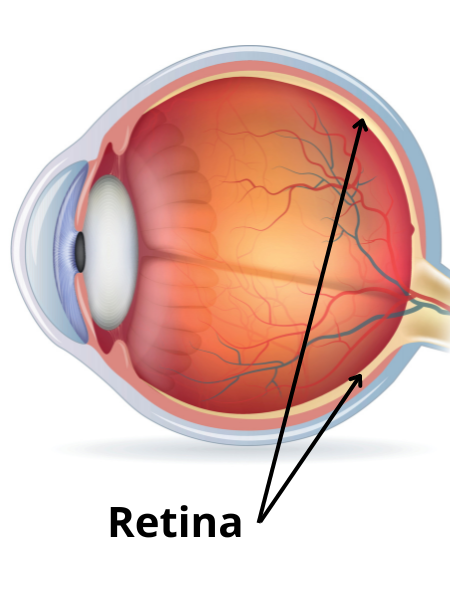Search
Search
The eye is a complicated structure that depends on multiple, small parts to work together in harmony in order for the eye to form visions that are seen clearly by the brain. One of the most important parts is the retina. As a retinal specialist, we are here to help our patients with a variety of retinal conditions. When it comes to issues involving the retina, there are a few key points to keep in mind.
The retina is a small part of the back of the eye that is responsible for translating images in a way that can be interpreted by the brain. The retina takes light, interprets it, and transmits it to the brain via the optic nerve. It is the job of the rest of the eye to make sure that light lands on the retina in a clear manner.
If there is an issue related to the degeneration of the retina, it is hard for someone to see clearly. This can have an adverse impact on someone’s overall quality of life.

There are a variety of conditions that might impact the retina and one of the most common is called age-related macular degeneration. This is one of the leading causes of blindness in the United States. When someone suffers from macular degeneration, they have a condition that impacts a very specific part of the retina called the macula. The macula is at the center of the retina. Therefore, symptoms of macular degeneration start to show up first in the center of the visual field. This can make it hard for someone to drive, read, and interpret faces. It will be almost impossible for someone to thread a needle. It is important for everyone to get their eyes checked regularly. The earlier macular degeneration is caught, the better the prognosis of our Phoenix macular degeneration treatments.
Another common eye condition that impacts the retina is called diabetic retinopathy. When someone suffers from diabetic retinopathy, they will develop gradual vision problems. Those who have diabetes are more likely to develop diabetic retinopathy if they are unable to control their blood sugar levels. High levels of sugar in the blood will start to damage the nerves and blood vessels that supply the eyes. This is one of the most common causes of diabetic retinopathy. The good news is that as long as people see an eye doctor regularly and follow the instructions of their endocrine team, diabetic retinopathy can be controlled effectively.
Conditions that impact the retina are serious and should be treated as such. If you are looking to learn more about diabetic retinopathy and other conditions that impact the retina, give us a call today to make an appointment. At Swagel Wootton, our goal is to make sure that all of our patients are able to see well into their later years.